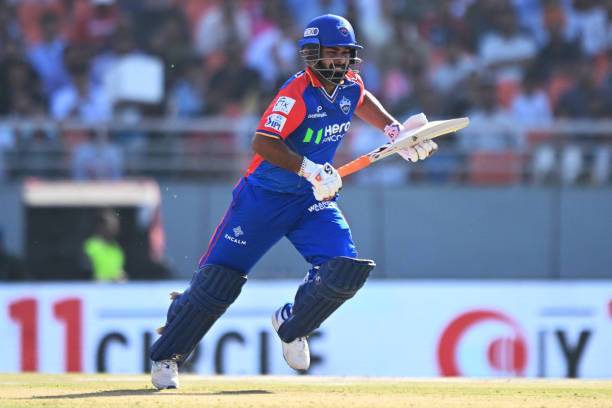The Impact of IPL on Indian Cricketing Infrastructure
all panel mahadev, mahadev book login, allpanel login: The Impact of IPL on Indian Cricketing Infrastructure
The Indian Premier League (IPL) has revolutionized the landscape of Indian cricket since its inception in 2008. With its glitz, glamour, and high-octane cricketing action, the IPL has not only entertained millions of fans but has also had a significant impact on the overall infrastructure of cricket in India. In this blog, we will delve into the various ways in which the IPL has influenced and transformed Indian cricketing infrastructure.
1. Professionalism in Cricket Management
The IPL brought a new level of professionalism to the management of cricket in India. Franchises were run like businesses, with a focus on branding, marketing, and player management. This emphasis on professionalism trickled down to domestic cricket as well, with state associations investing more in infrastructure, player development, and coaching.
2. Grassroots Development
One of the most significant impacts of the IPL has been its role in grassroots development. The league created a platform for young Indian players to showcase their talent alongside international stars. This exposure has not only helped in identifying and nurturing young talent but has also inspired a new generation of cricketers to take up the sport.
3. Infrastructure Upgrades
The IPL has led to a massive upgrade in cricketing infrastructure across the country. From state-of-the-art stadiums to world-class training facilities, the league has spurred investments in infrastructure that has benefitted both players and fans alike. The improved infrastructure has also attracted international teams and tournaments to India, further boosting the country’s cricketing reputation.
4. Role of Coaches and Support Staff
The IPL has raised the bar for coaching and support staff in Indian cricket. The league has brought in top international coaches, trainers, physiotherapists, and analysts who have helped in improving the skills and fitness levels of Indian players. This emphasis on professional coaching has translated into better performance on the field and a more robust talent pool for the national team.
5. Women’s Cricket
The IPL has also had a positive impact on women’s cricket in India. The Women’s T20 Challenge, a tournament held alongside the IPL, has given a platform to female cricketers to showcase their skills and gain valuable exposure. The increased visibility and investment in women’s cricket have led to a resurgence in interest in the sport among young girls, paving the way for a brighter future for women’s cricket in India.
6. Global Recognition
The IPL has played a significant role in putting Indian cricket on the global map. The league’s success has attracted international players, coaches, and audiences, making it one of the most-watched cricket tournaments worldwide. The exposure to international cricketing standards has raised the overall quality of cricket in India and has helped Indian players excel on the international stage.
7. Inclusivity and Diversity
The IPL has also been a driving force for inclusivity and diversity in Indian cricket. The league’s diverse team compositions, with players from different states, regions, and countries, have fostered a sense of unity and camaraderie among players. The league has also given opportunities to players from lesser-known cricketing regions to showcase their talent and make a mark in the cricketing world.
8. Economic Boost
The IPL has not only transformed Indian cricketing infrastructure but has also been a significant economic driver. The league has created numerous job opportunities for players, coaches, support staff, and administrators, contributing to the overall growth of the sports industry in India. The IPL has also boosted tourism and hospitality sectors, with millions of fans traveling to different cities to watch matches and support their favorite teams.
9. Research and Development
The IPL has been a hotbed for research and development in cricketing techniques, strategies, and technologies. The use of data analytics, video analysis, and advanced training methods has become commonplace in the league, setting new benchmarks for cricketing research globally. This emphasis on innovation and technology has not only improved player performance but has also opened new avenues for collaboration and partnerships in the sports industry.
10. Fan Engagement
Last but not least, the IPL has redefined fan engagement in Indian cricket. The league’s innovative marketing campaigns, fan zones, and interactive social media presence have helped in broadening the fan base and creating a more inclusive cricketing community. The IPL has made cricket more accessible and appealing to fans of all ages and backgrounds, strengthening the bond between players and supporters.
In conclusion, the IPL has had a profound impact on Indian cricketing infrastructure, shaping the future of the sport in the country. The league’s emphasis on professionalism, grassroots development, infrastructure upgrades, and inclusivity has elevated Indian cricket to new heights and set a precedent for sports management worldwide. As the IPL continues to grow and evolve, its legacy will undoubtedly continue to shape the landscape of Indian cricket for years to come.
FAQs
Q: How has the IPL benefitted domestic cricket in India?
A: The IPL has benefitted domestic cricket in India by providing a platform for young players to showcase their talent, improving infrastructure, and raising the overall standard of the game.
Q: What impact has the IPL had on women’s cricket in India?
A: The IPL has had a positive impact on women’s cricket in India by creating opportunities for female players to participate in the Women’s T20 Challenge and raising awareness and investment in women’s cricket.
Q: How has the IPL influenced coaching and support staff in Indian cricket?
A: The IPL has raised the bar for coaching and support staff in Indian cricket by bringing in top international professionals who have helped improve the skills and fitness levels of players.
Q: How has the IPL contributed to the economic growth of Indian sports industry?
A: The IPL has contributed to the economic growth of the Indian sports industry by creating job opportunities, boosting tourism and hospitality sectors, and attracting investments in cricketing infrastructure.
Q: What role has the IPL played in promoting inclusivity and diversity in Indian cricket?
A: The IPL has played a significant role in promoting inclusivity and diversity in Indian cricket by forming diverse team compositions, providing opportunities to players from different regions, and fostering unity among players.







